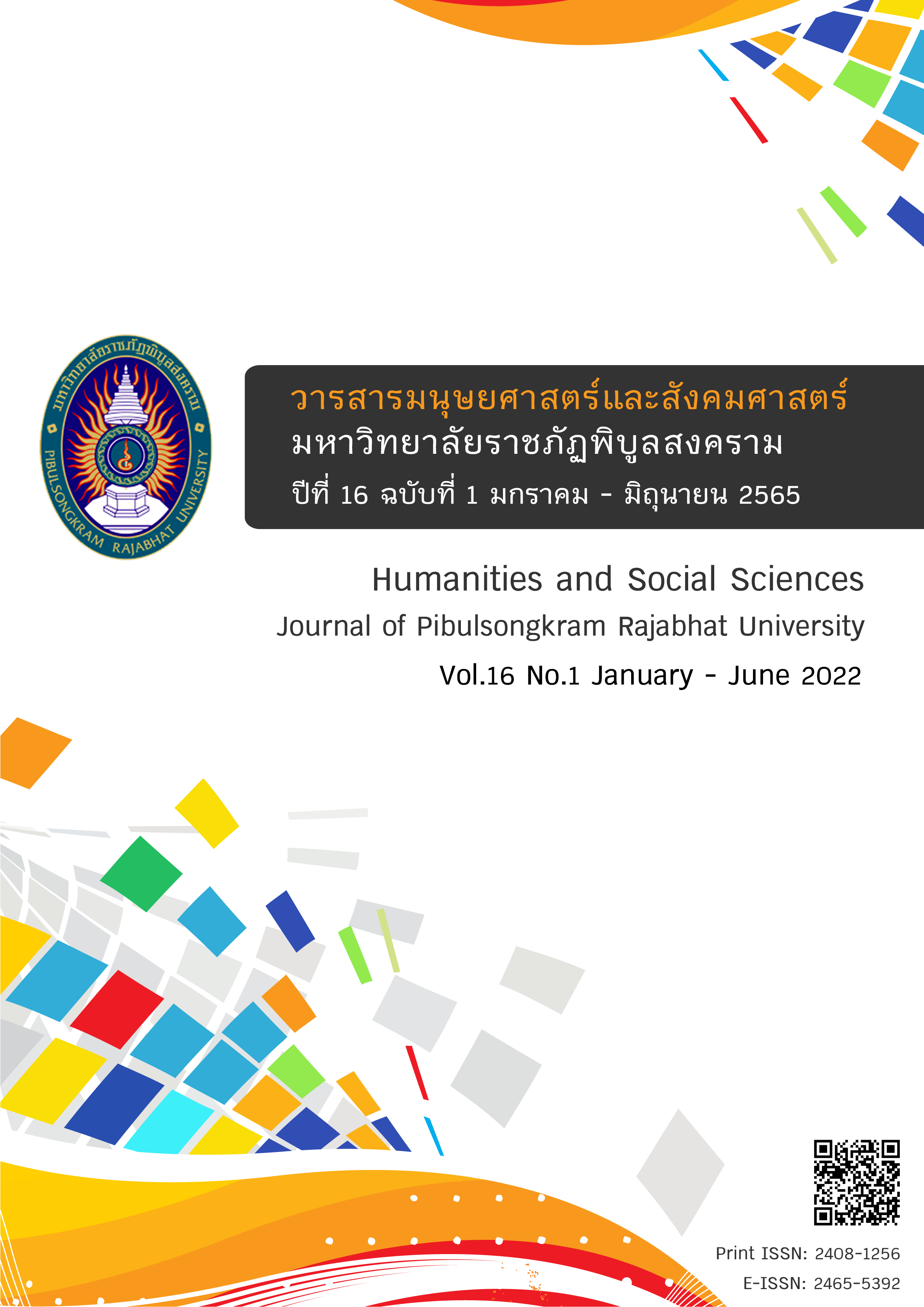Teacher Enhancement Activities in the 4.0 Era
DOI:
https://doi.org/10.14456/psruhss.2022.2Keywords:
Enhancement activities, The 4.0 EraAbstract
To develop the potential of students in the teaching profession to be potential teachers. Not only academic activities but also the curriculum development through teacher reinforcement activities is absolutely necessary. In accordance with the National Qualifications Framework for Higher Education 2009, institutions are required to set up teacher reinforcement activities each year. Which may organize activities / projects specifically or may be managed to integrate with learning in various courses. To strengthen the feature Being a teacher and citizenship not less than two activities per year. The teacher enhancement activities in the 4.0 era will have characteristics that can enhance the potential of teachers to become teachers in the 4.0 era with 3 characteristics, First the knowledge, knowledge in various areas such as teaching and learning. About oneself, students, communities, policies and education background, multicultural knowledge, assessing skills etc. Second is the skills, there are skills such as reflection and thinking skills, teaching skills, management skills communication skills, coordination skills, technology skills, innovation and entrepreneurial skills, questioning skills, evaluation skills and the environment that is conducive to learning skills, etc. Last one is the attitude. Teacher must have attitude that allow students to be a center of learning. Helping others and communities. Awareness of environmental changes. Social responsibility and team work.
References
นงลักษณ์ ใจฉลาด. (2557). ทิศทางการจัดการเรียนการสอนสำหรับผู้สอนยุคใหม่ในระดับอุดมศึกษา. วารสารมนุษยศาสตร์และสังคมศาสตร์ มหาวิทยาลัยราชภัฏพิบูลสงคราม, 8(2), 1–13.
พัชราภา ตันติชูเวช. (2560). คุรุศึกษาและการพัฒนาวิชาชีพครู : การเรียนการสอนในวิชาชีพครู ทำอย่างไรให้ทันสมัย. กรุงเทพฯ: จุฬาลงกรณ์มหาวิทยาลัย.
เพชรสุดา ภูมิพันธ์. (2560). คุรุศึกษาและการพัฒนาวิชาชีพครู : หลักสูตรครุศาสตร์ศึกษาศาสตร์ จะไปในทิศทางใด. กรุงเทพฯ: จุฬาลงกรณ์มหาวิทยาลัย.
สุพินดา ฤทธิจันทร์. (2562). ครูไทยในยุค 4.0 สู่การพัฒนาอย่างยั่งยืน. ใน งานประชุมวิชาการระดับชาติ ครั้งที่ 11 มหาวิทยาลัยราชภัฏนครปฐม จังหวัดนครปฐม (น. 1620-1627). นครปฐม: มหาวิทยาลัยราชภัฏนครปฐม.
สุวิทย์ เมษินทรีย์. (2559, 25 ธันวาคม). พิมพ์เขียวและแผนปฏิบัติการขับเคลื่อน : Thailand 4.0 โมเดลขับเคลื่อนประเทศไทยสู่ความมั่นคง มั่งคั่งและยั่งยืน. มติชน, สืบค้น 6 พฤษภาคม 2563, จาก https://www.iok2u.com/attachments/article/1734/2194_5919.pdf
อดุลย์ วังศรีคูณ. (2557). การศึกษาไทยในศตวรรษที่ 21 : ผลผลิตและแนวทางการพัฒนา. วารสารมนุษยศาสตร์และสังคมศาสตร์ มหาวิทยาลัยราชภัฏพิบูลสงคราม, 8(1), 1–17.
อภิภา ปรัชญพฤทธิ์. (2560). การพัฒนารูปแบบการผลิตครูเพื่อรองรับการศึกษายุค 4.0. วารสารร่มพฤกษ์ มหาวิทยาลัยเกริก, 35(3), 101-136.
Mason, D. (2016). Teacher Effectiveness Enhancement Programme : Evaluation report and executive summary November 2016. สืบค้น 6 พฤษภาคม 2563, จาก https://files.eric.ed.gov/fulltext/ED581110.pdf
Soland, J., Hamilton, L. S., & Stecher, B. M. (2013). Measuring 21st century competencies: Guidance for educators. Santa Monica, CA: RAND Corporation.
Downloads
Published
How to Cite
Issue
Section
License
Copyright (c) 2020 Humanities and Social Sciences Journal of Pibulsongkram Rajabhat University

This work is licensed under a Creative Commons Attribution-NonCommercial-NoDerivatives 4.0 International License.
Any articles or comments appearing in the Journal of Humanities and Social Sciences, Rajabhat Phibulsongkram University, are the intellectual property of the authors, and do not necessarily reflect the views of the editorial board. Published articles are copyrighted by the Journal of Humanities and Social Sciences, Rajabhat Phibulsongkram University.









